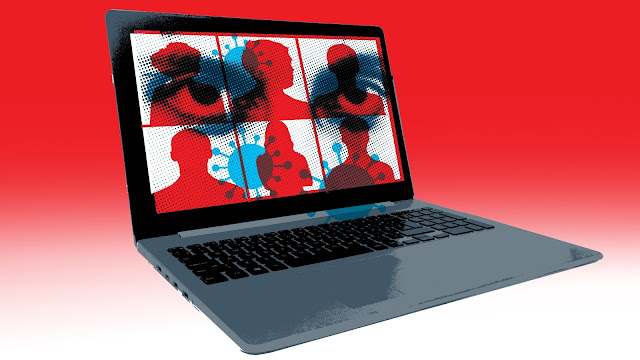- Get link
- X
- Other Apps
- Get link
- X
- Other Apps
Cybercriminals Use the Corona Issue as A Lure for Phishing and Malware; Antivirus Software Is Here to Protect You
Many cybercriminals are taking advantage of the current corona crisis. Fear of the virus means that e-mails with malicious attachments are opened without thinking. The aim of the criminals is to infiltrate the computer and thus into the victim's IT infrastructure with the help of the malware.
Even in times before Corona, companies were vulnerable to cyber-attacks through fake e-mails and downloads containing malware. But due to the high level of attention paid to the current topic, hackers use large phishing * and malware ** campaigns to profit from the fear of the population. The creators use the information offered by well-known institutions such as the WHO or the Robert Koch Institute. With subject lines such as "Corona safety measures" or "Corona hygiene tips", the attackers try to lure the user to changed pages. The user data and identities are then picked up there in order to then use them for other online services and thus cause damage. The contents of the phishing emails include news about helping medication,
How Can You Identify Such Phishing Emails?
- Subject: Enticing subjects such as "Corona safety measures" and the associated fears encourage users to read the email.
- Salutation: Many phishing emails consist of a general salutation such as “Dear customer” or “Dear Sir or Madam”. Please note, however, that personal data is also being used more and more frequently.
- Content: Here the attackers insert various pieces of information, which they often copy from well-known institutions such as the WHO or the Robert Koch Institute.
- The necessity to act: You are asked to act by being asked to click on the links on the institutions' pages copied by the attackers in order to be brought up to date with the latest information. Also, personal data are often requested for “control” or “confirmation”.
- Time: You are asked to act quickly so that you do not have time to become suspicious. The time spans vary from 24 hours to seven days or even until the end of the current month.
- Link or attachment: The attackers often include a link in the email or attach a file. You are not allowed to click on them! In a few cases, you will be asked to reply to the e-mails.
Summary of The Top Tips to Keep in Mind:
- Look carefully at the sender's e-mail address and have the full address displayed in your e-mail program.
- Take a look at the salutation on the email. Often these are given a general salutation such as “Dear customer” or “Dear Sir or Madam”, although the alleged sender has your personal data and usually greets you with a personal salutation.
- Do not open any file attachments with the extension such as: .zip , .exe, .com, .vbs, .bat, .sys and. reg
- Be careful when opening links. If you move the cursor over a link, many mail programs offer the display of the complete link.
- Do not reply to these emails.
- Don't let yourself be put under time pressure.
- Watch out for spelling and grammatical errors.
- Don't forget to install antivirus software to protect your data from cybercriminals.
Antivirus Software
Cyber-Attacks
Cyber-Criminals
Install Antivirus Software
Malicious Attachments
Malware
Phishing
Phishing Emails
- Get link
- X
- Other Apps

Comments
Post a Comment